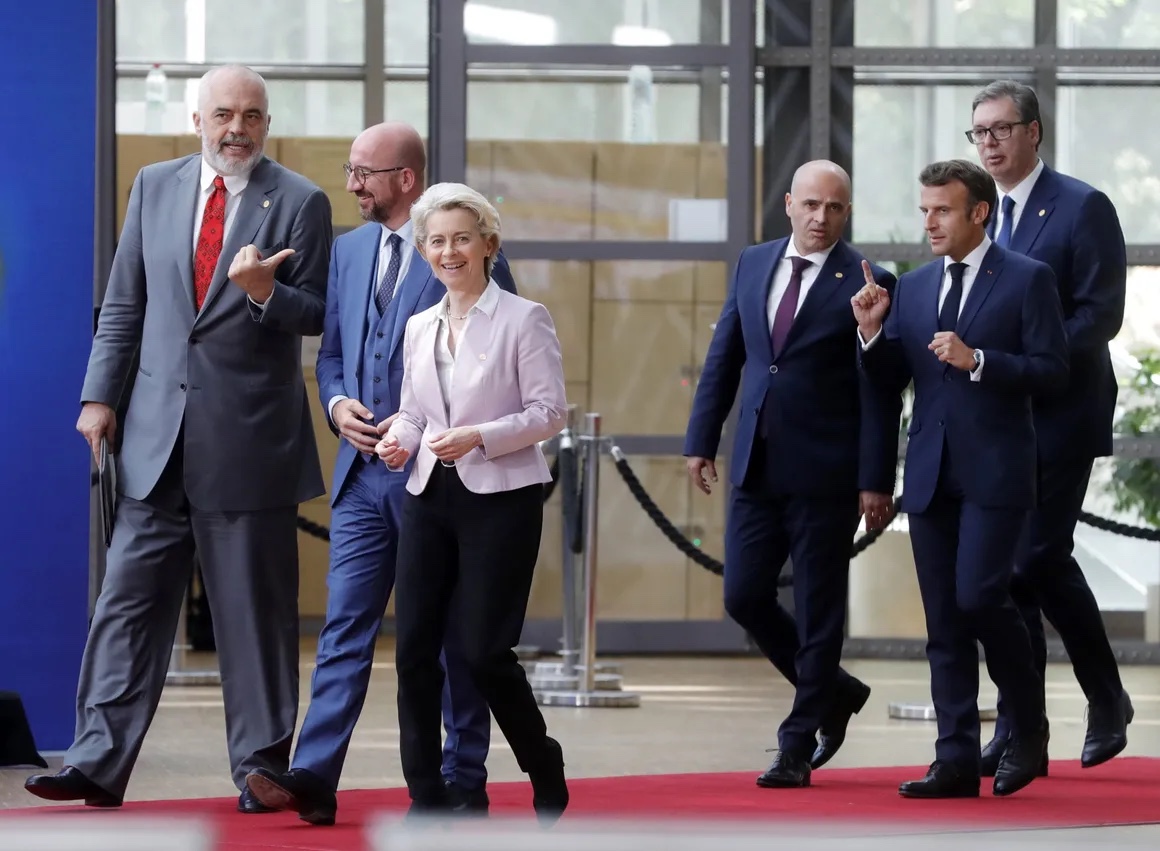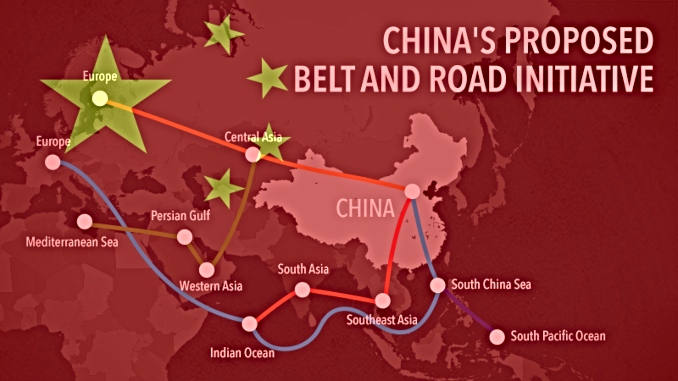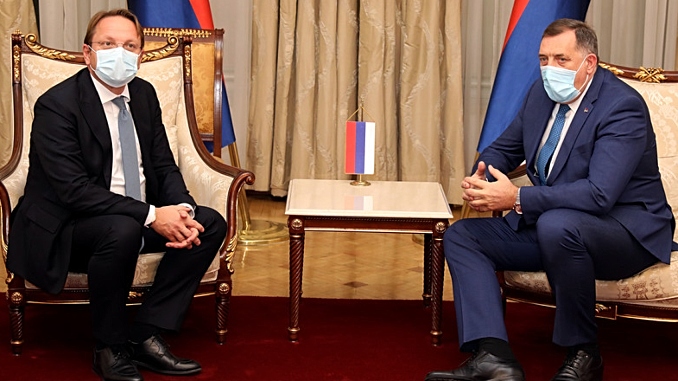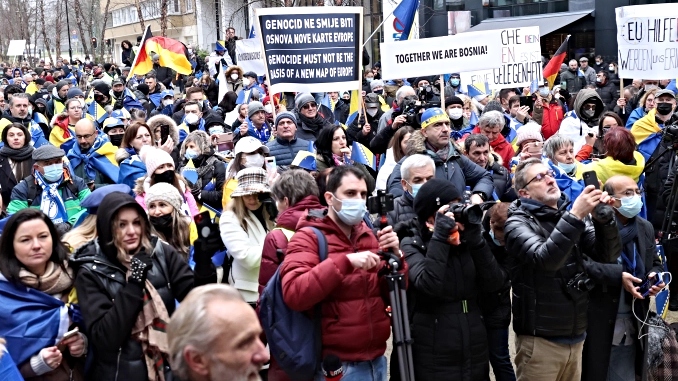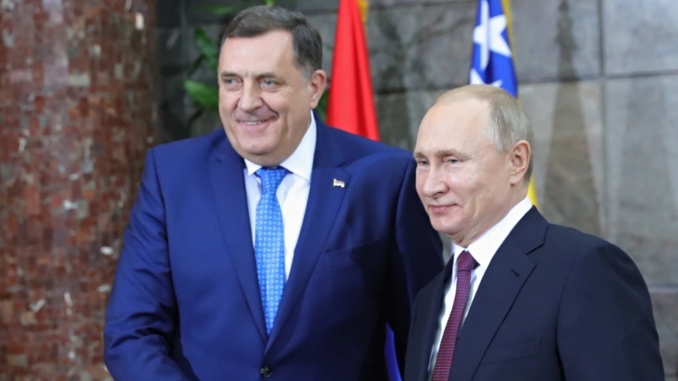EU’s Own Credibility is at Stake in Macedonia
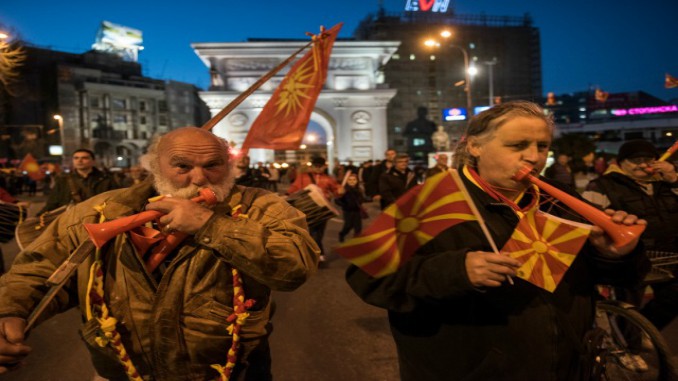
In its approach to Macedonia, and the Balkans, the EU has neglected democratisation in the name of stability – and has so betrayed its own values and empowered local autocrats.
As an institution, the EU has had difficulty in acknowledging the systemic sources of political behavior in the Balkans and adjusting its responses accordingly. [Individual officials, especially those on the ground, tend to understand the situation a little better.]
These are countries with weak or non-existent accountability mechanisms: they lack the institutional checks and balances, strong parties or the vigilant civil societies and media that make up textbook liberal democracies.
Their politics are zero-sum and sometimes existential: one reason why former Macedonian Prime Minister Nikola Gruevski is clinging to power is his conviction – probably correct – that losing power would mean going to jail.
Forced into a choice between power or obtaining a symbolic reward from Brussels, he will unsurprisingly choose power and survival over foreign acclaim.
Balkan leaders are not irrational; they respond to an institutionally entrenched political culture. In Macedonia and in Bosnia and Herzegovina, this political culture was reinforced by post-conflict settlements at Ohrid and Dayton with their in-built clientelism.
The EU’s enlargement policy has failed to change this basic equation. The most inward-looking European Commission in recent times has further degraded enlargement as a tool for political transformation, signaling that membership is a long way off for the current candidate countries and putting a man in charge whose priority seems to be to do as little as possible.
The EU has pursued an agenda of stability rather than of democratisation in the region. Instead of pushing for a transformation of political culture, it has cultivated incumbent elites. Like them, it is terrified of the sort of “people power” [or at least raw anger] that was evident in Macedonia after the wiretapping scandal broke, or in Bosnia in the spring of 2014.
For a moment, in summer 2015, it looked as if the European Commission might drop its customary reticence and take a more political approach to one of the countries seeking to join the European Union – in this case, Macedonia.
A panel headed by Reinhard Priebe, a former Commission official, outlined measures that Gruevski’s centre-right government would have to take to restore confidence and strengthen accountability following the wiretapping scandal and an apparent systemic abuse of power.
The Priebe report, which was unusually blunt in its analysis and prescriptive in its recommendations, was made public – another unusual step for the Commission, which generally prefers to resolve problems in candidate countries behind closed doors.
In the following months, the crisis in Macedonia deepened. EU-led mediation between the government and the opposition resulted in a deal on early elections and a parallel process of investigating the wiretapping claims and other accusations of abuse of power.
However, the elections in December 2016 were inconclusive: Gruevski’s party held on to a wafer-thin lead over the opposition Social Democrats but lacked the numbers to form a government on its own.
It subsequently proved unable to build a new coalition with ethnic Albanian parties. But when the Social Democrats struck a deal with two ethnic Albanian parties that would have given them a majority in parliament, the President, a Gruevski ally, blocked it.
At that point, Federica Mogherini, the EU’s foreign policy chief, stepped in, calling on the President to allow the new coalition to take power. In early March, she said in Skopje that the President’s action broke “the spirit of democracy” and was “inconsistent with basic democratic principles” and “the Euro-Atlantic integration process.”
She continued: “I asked the President to reflect on the way forward, to reverse his decision in the interest of all citizens of this country.”
These were clear, strong words. Yet, at the time of writing, Gruevski and his associates are still holding firm.
Is this proof that “conditionality doesn’t work,” as a senior former Commission official involved in enlargement negotiations put it? Does the EU, as another Commission official suggested, really have “very limited influence over events” in its neighborhood?
In Macedonia’s case, there was another reason why the EU was reluctant to rock the boat, and why the two episodes – the Priebe report and Mogherini’s strong plea to the President – remained isolated moments of clear-headedness.
In 2015-16, hundreds of thousands of refugees and migrants used Macedonia as an escape route from Greece and a corridor to Western Europe. Stopping new arrivals became the overriding goal for policymakers in Brussels, Berlin, and elsewhere.
The EU’s goal of closing the “Balkan route” and of deterring refugees from trying to reach Greece now overrode all other concerns. Macedonia was a critical building block of that policy, although the damage that this policy was doing was most visible in relations with Turkey.
Led by Germany, the EU traded its principles for short-term relief; it cultivated an increasingly authoritarian leader – President Erdogan of Turkey – and in effect campaigned for his party in the general election of November 2015, for example by delaying the release of the Commission’s annual progress report for candidate countries.
Something similar was happening in Macedonia. In a display of contempt for any unified EU position countering Gruevski’s abuses, Sebastian Kurz, Austria’s Foreign Minister, campaigned for Gruevski in the run-up to the December 2016 election.
At the same time, the intervention of specific member states – primarily Germany, the UK and the Netherlands – and the US, was required to hold the Gruevski government to its commitments under the deal with the opposition.
At critical moments throughout Macedonia’s crisis, it was bilateral pressure and crisis diplomacy from these countries that kept the process moving, even though the EU was nominally in the lead in mediating between the government and the opposition.
This was a direct result of the EU’s diminished credibility and its pursuit of stability above all else. Standing up to strongmen of the Gruevski type does not come easily to the EU.
The EU could yet regain some of its diminished authority, however, if it builds on the Priebe report and on Mogherini’s comments.
It should make it clear that the Macedonian President must allow any coalition with a parliamentary majority to form a government.
It must insist that the various elements of the Priebe report and of the deal between ruling party and opposition be implemented in full, and that those charged with abuse of power should be prosecuted.
But the EU will only be credible if it is prepared to go public with such messages and openly challenge those in power – in Macedonia and beyond.
Preaching will not be sufficient: the EU must also reaffirm its commitment to fundamental values by sanctioning member states that are backsliding on democratic reform, above all Hungary and Poland, and those that have prevented refugees from seeking the protection to which they are entitled.
At a time when US foreign policy has become erratic and the Balkans have completely dropped off the radar, it is vital that the EU and the US remain united in their approach. The US has tended to take a slightly more muscular approach, for example by freezing the assets of Milorad Dodik, the Bosnian Serb leader.
The fact that the EU has been reluctant to follow that lead has further signaled that it is not to be taken seriously.
EU foreign ministers should consider sanctions against any politician in Macedonia who is trying to undermine the deal agreed between the government and the opposition.
In an EU that now views its neighborhood as an unwelcome distraction, the Priebe report and the Mogherini statement were an exception, not the rule. They reflected a sense of panic in Brussels, not a new strategy for dealing with the Western Balkans.
The EU keeps insisting that there are no fires in need of putting out in the Balkans – yet its main mode of engagement is fire-fighting. As long as this does not change, the EU will find it difficult to have a truly transformative effect on the region.
Source: BIRN

